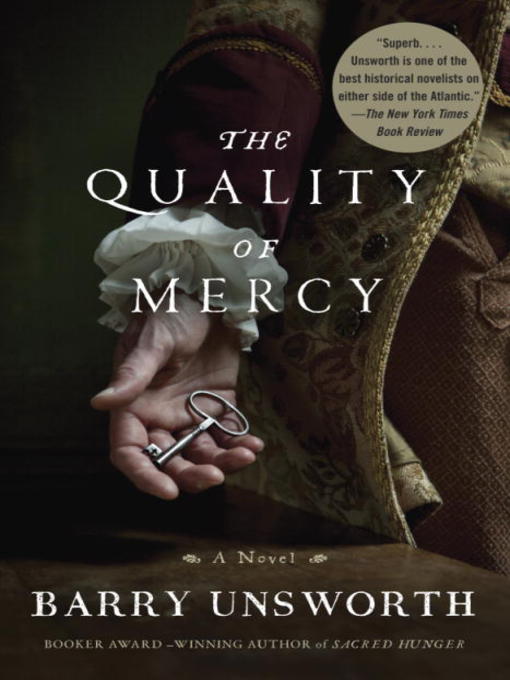Barry Unsworth returns to the terrain of his Booker Prize-winning novel Sacred Hunger, this time following Sullivan, the Irish fiddler, and Erasmus Kemp, son of a Liverpool slave ship owner who hanged himself. It is the spring of 1767, and to avenge his father's death, Erasmus Kemp has had the rebellious sailors of his father's ship, including Sullivan, brought back to London to stand trial on charges of mutiny and piracy. But as the novel opens, a blithe Sullivan has escaped and is making his way on foot to the north of England, stealing as he goes and sleeping where he can.
His destination is Thorpe in the East Durham coalfields, where his dead shipmate, Billy Blair, lived: he has pledged to tell the family how Billy met his end.
In this village, Billy's sister, Nan, and her miner husband, James Bordon, live with their three sons, all destined to follow their father down the pit. The youngest, only seven, is enjoying his last summer aboveground.
Meanwhile, in London, a passionate anti-slavery campaigner, Frederick Ashton, gets involved in a second case relating to the lost ship. Erasmus Kemp wants compensation for the cargo of sick slaves who were thrown overboard to drown, and Ashton is representing the insurers who dispute his claim. Despite their polarized views on slavery, Ashton's beautiful sister, Jane, encounters Erasmus Kemp and finds herself powerfully attracted to him.
Lord Spenton, who owns coal mines in East-Durham, has extravagant habits and is pressed for money. When he applies to the Kemp merchant bank for a loan, Erasmus sees a business opportunity of the kind he has long been hoping for, a way of gaining entry into Britain's rapidly developing and highly profitable coal and steel industries.
Thus he too makes his way north, to the very same village that Sullivan is heading for . . .
With historical sweep and deep pathos, Unsworth explores the struggles of the powerless and the captive against the rich and the powerful, and what weight mercy may throw on the scales of justice.
- Available now
- New eBook additions
- Most popular
- Try something different
- Popular Graphic Novels
- Popular Cookbooks
- Manga Series Starters
- Celebrate Disability Pride Month!
- See all ebooks collections
- Available now
- New audiobook additions
- Try something different
- Most popular
- Language Learning
- The Great Courses
- Celebrate Disability Pride Month!
- See all audiobooks collections
- Most Popular
- News & Politics
- Cooking & Food
- Celebrity
- Home & Garden
- Entertainment
- Health & Fitness
- Fashion
- Hobbies & Crafts
- Tech & Gaming
- Cars & Motorcycles
- Family & Parenting
- Sports
- See all magazines collections




